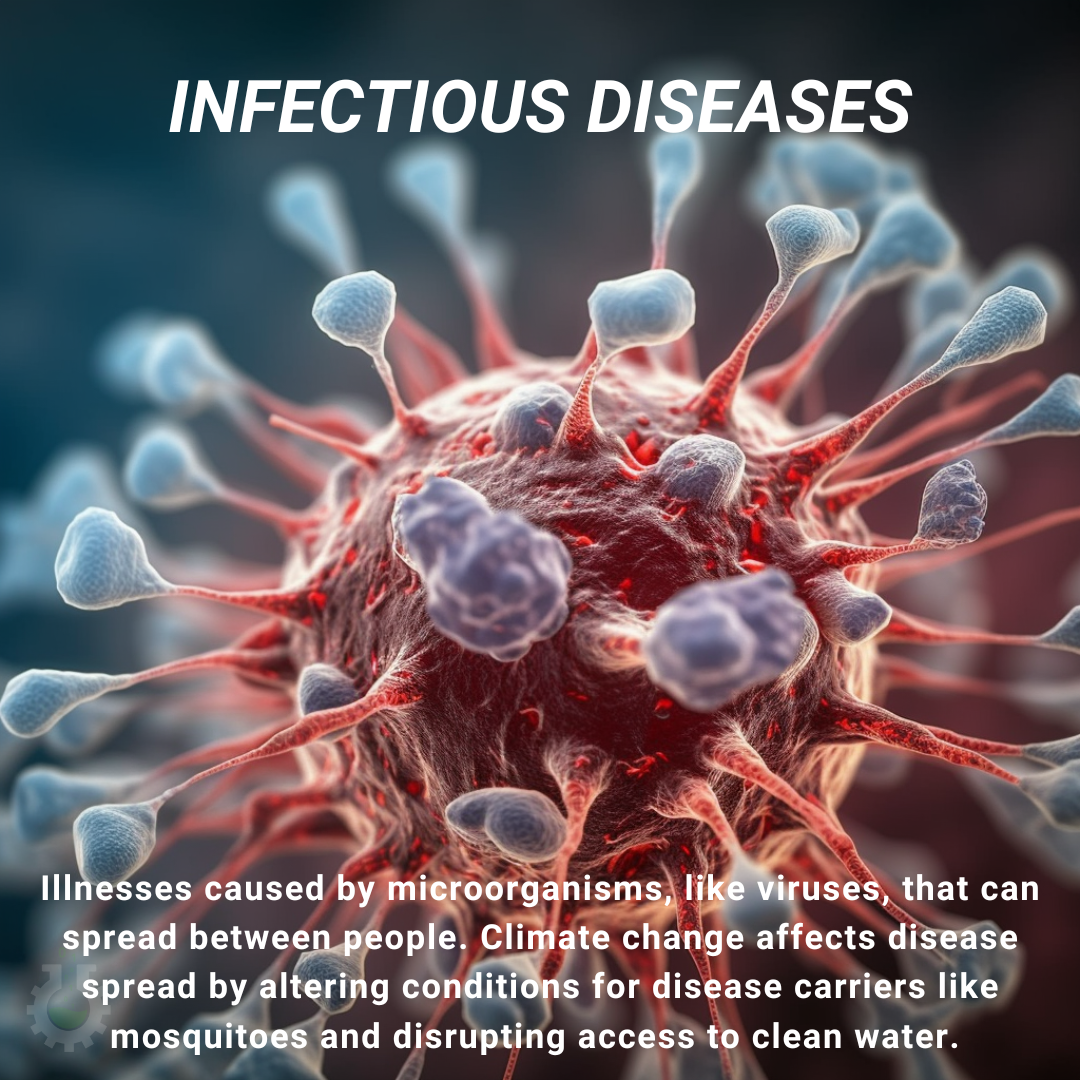October 12, 2023
Climate Change Poster Collection of the Day – Infectious Diseases
Book a Demo
Today’s Climate Change Poster Collection highlights Infectious Diseases. Climate change plays a significant role in the spread and control of infectious diseases, as variations in temperature, precipitation, and humidity can create favorable conditions for pathogens. These organisms, which include viruses, bacteria, fungi, and parasites, thrive under specific climatic conditions, often resulting in the spread of diseases.
Furthermore, climate-related conditions significantly influence animals such as rodents, mosquitoes, and ticks. These creatures serve as hosts for pathogens and facilitate the spread of diseases. As climate change continues to affect the habitats and behavior of these animals, we can expect a corresponding impact on the incidence and spread of the diseases they carry.
Extreme weather events associated with climate change can also contribute to disease spread. These events can cause population displacement, disrupting healthcare services and creating conditions conducive to the spread of diseases. Therefore, as climate change fuels more extreme weather events, we can foresee an increase in the spread of infectious diseases.
However, climate change’s impact on infectious diseases is not uniform. While it may increase epidemic infectious diseases in new areas or among populations traditionally considered low-risk, some diseases may decrease due to global warming. This variability underscores the complexity of the relationship between climate change and disease spread.
A 2023 study sheds light on some of the biases in the research on climate change and infectious diseases. The study highlights a research bias toward infectious diseases impacting humans and those prevalent in high-income, temperate countries. This focus neglects diseases affecting wildlife and those in tropical regions, which also bear the brunt of climate change.
The study also found that most research on climate change and infectious diseases is conducted at local and regional scales. There is a lack of global-level studies, which could provide a more comprehensive understanding of the impacts of climate change on disease spread. This gap in research could potentially hamper efforts to mitigate and adapt to these impacts.
Interestingly, the study also exposed a gender bias in authorship in this field of research. This revelation underscores the need for diversity in research contributions to ensure a broad and inclusive understanding of the issue. The researchers suggest that future studies should consider diseases of direct transmission and prioritize underrepresented areas and neglected disease systems.
Climate change has a significant impact on the spread of infectious diseases. However, to effectively manage and mitigate these impacts, we need to address the biases and gaps in current research. This includes conducting more global-level studies, focusing on neglected diseases and regions, and promoting diversity in research contributions.
Discover an inspiring collection of climate change posters.



